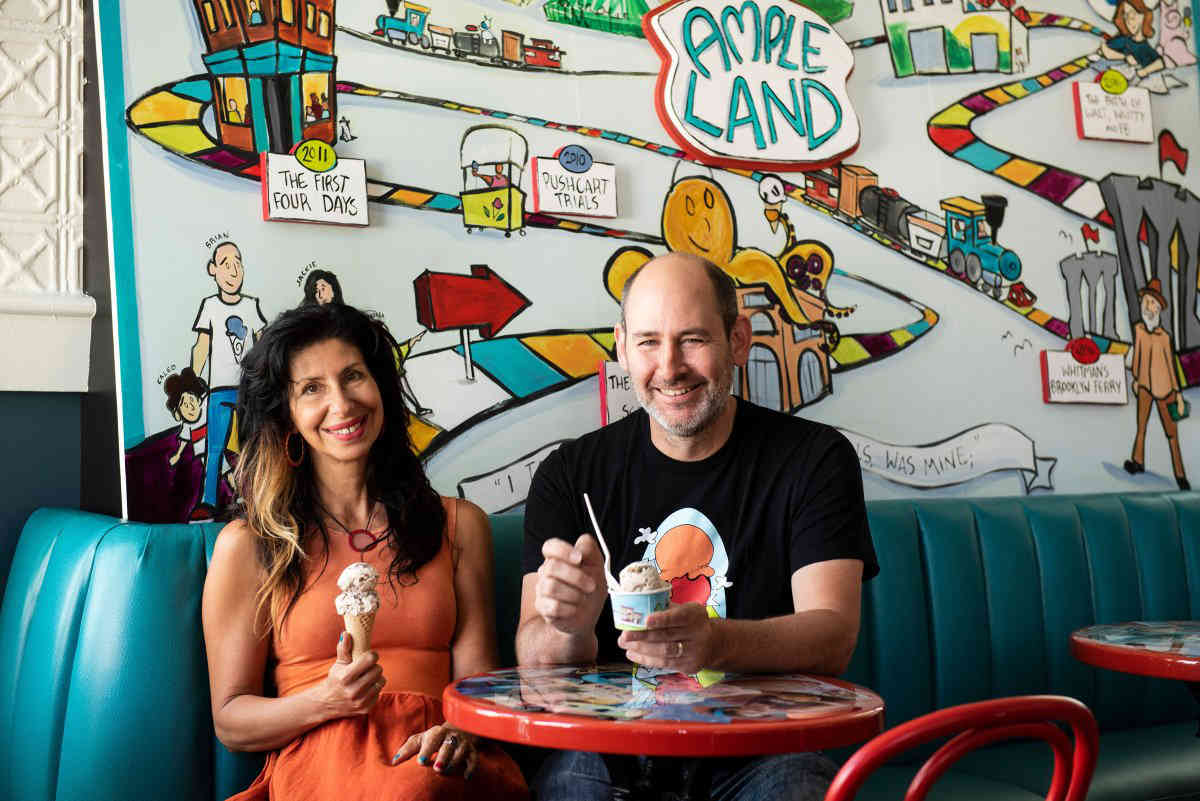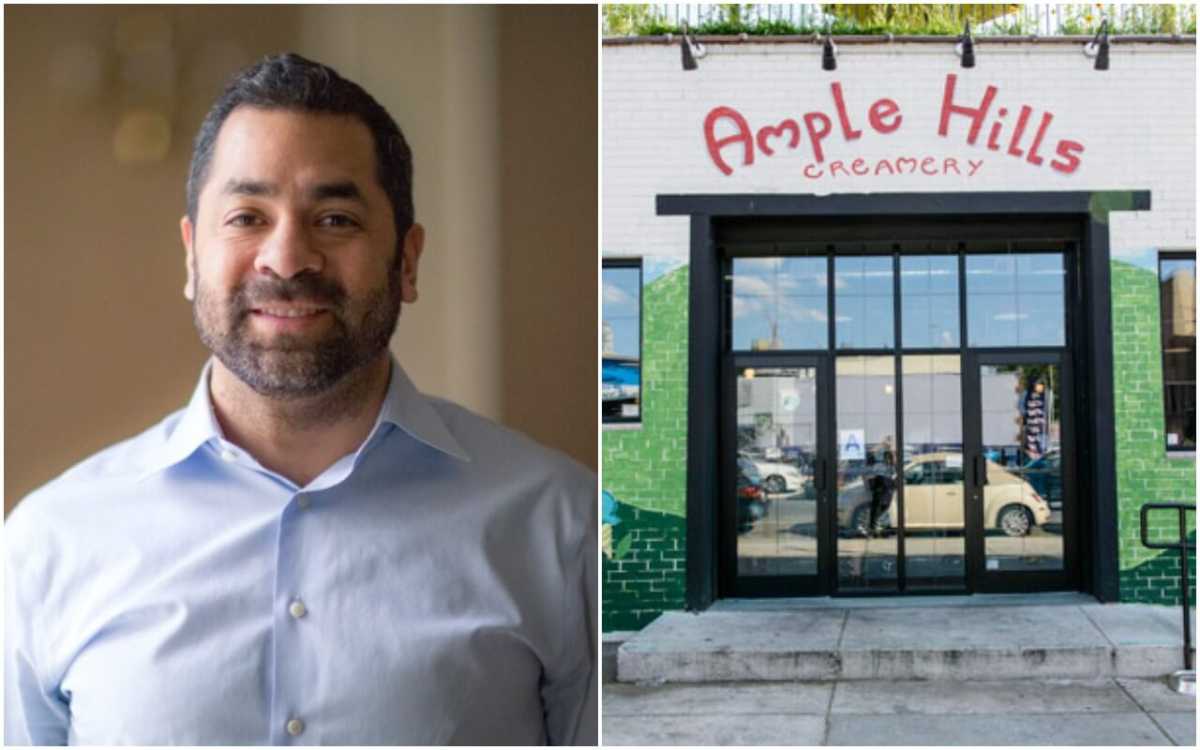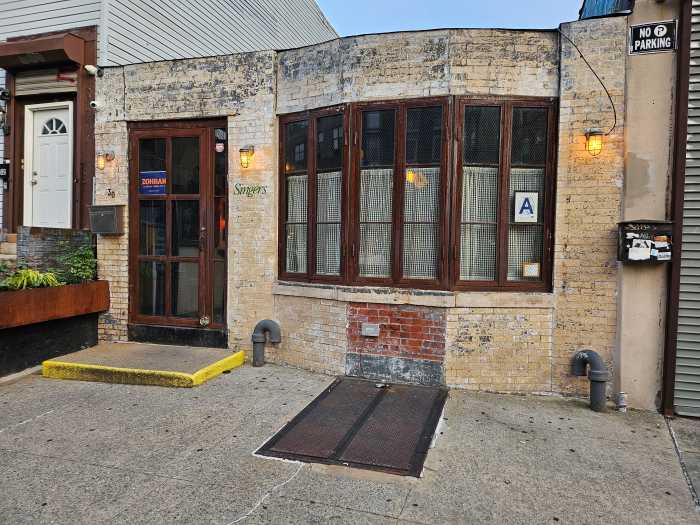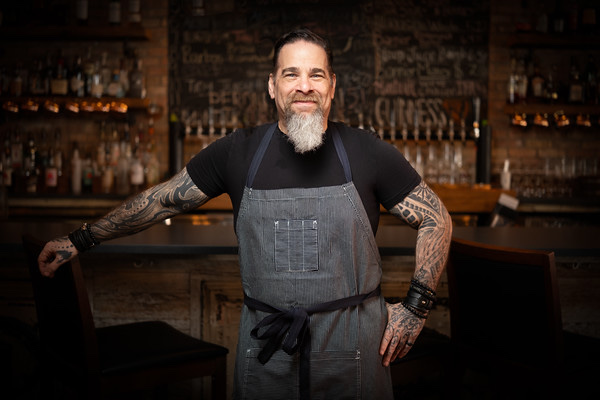A week after the co-founders of Brooklyn ice cream makers Ample Hills bowed out of the company amid its bankruptcy sale, its new chief is eager to reopen the scoop shops in Kings County and beyond soon.
Oregonian manufacturing company Schmitt Industries closed the $1 million purchase of the Brooklyn scoop shop chain on July 10, and the buyer said they’ll focus on bringing back the brand’s zany flavors while keeping customers and the workforce safe amid the COVID-19 pandemic.
“The safety and well-being of our ‘Amployees’ is of the utmost importance as we reopen retail locations in the greater Brooklyn and New York area,” said Schmitt’s Chief Executive Officer and interim head of Ample Hills Michael Zapata in a statement after the sale. “Their engagement with our loyal customers daily, the excellent flavors and stories built into every pint of ice cream, and the brand’s effortless nostalgia make up this special company.”
Schmitt Industries plans to rehire some 200 furloughed staff and reopen the nine outposts in the coming weeks, according to Zapata. The chain will also take added precautions to stem the spread of the viral outbreak — such as temperature checks for employees, mandatory masks and gloves, and plexiglass barriers to safely serve the scoops.
“We want to do it in a safe way, given the environment we’re in,” said Zapata in an interview Monday.
Their branches include Prospect Heights, Dekalb Market Hall in Downtown Brooklyn, Gowanus, Red Hook, the Fireboat at Fulton Ferry Landing in Dumbo, Astoria in Queens, Chelsea and Essex Market in Manhattan, and Jersey City.
The exact opening dates are not set, Zapata said, adding that his firm is also taking time to learn more about the creamery, which known for its hyper-local flavors, such as “The Hook” from its factory in Red Hook, or “It Came from The Gowanus” honoring Brooklyn’s Nautical Purgatory.
“We’re doing a lot of listening and learning right now,” he said.
The firm plans to invest in the brand and make it more “efficient,” which will include updating equipment and improving its whole-sale and online business, according to Zapata.
The new chief said he’s assembled a team of veteran Ample Hill scoopsters to help the brand bounce back from months of being shuttered and many layoffs due to financial troubles.
“The core group of Amployees — those behind the design and flavor creation — all those folks are coming back with us,” he said. “We have people who have been with the business from the beginning, whose DNA is deep in the business.”
But the company’s husband-and-wife founders Brian Smith and Jackie Cuscuna won’t be part of the relaunched business, after they announced their departure on July 6.
“We made every effort to try to bring them along for the ride, ultimately they decided to go a different way,” Zapata said. “But ultimately we have the core group, that’s what’s most important to us.”
When reached by phone, Cuscuna did not go into detail why she and Smith decided to leave, but said that the couple and the new owners couldn’t see eye-to-eye on the future of the company and their role in it.
“Ultimately we just didn’t share the same vision or creativity. It didn’t seem as though they were interested in any kind of a partnership moving forward,” said Cuscuna.

Ample Hills declared Chapter 11 bankruptcy in March, but not due to the outbreak of the novel coronavirus, according to its founders, rather because of mounting costs of building out and maintaining their 15,000 square-foot Red Hook factory.
Cuscuna said that the transition from smaller batch freezers used to produce the frozen dessert to industrial-sized continuous freezers in the Van Brunt Street site forced them to rejig their recipes to still make them work at a large scale.
The business could also not make up the revenue to pay for the cost of such a sizable production with the number of stores they had, and Cuscuna said that they should have waited until they had more shops.
“Our idea with the factory was to make it bigger and grow into it,” Cuscuna said. “In retrospect we should have waited to build such a big facility until we had more stores.”
She said that she was still processing the events and that she and Smith gave up a part of their life when leaving the business, which they started by selling scoops from a pushcart in Prospect Park back in 2010.
“I’m honestly still kind of reeling over the decision, it wasn’t an easy one,” she said. “The last thing we wanted to do is abandoning the company we started out of love for fantastical ice cream. It’s a part of our lives, it’s like a third child.”

























